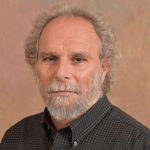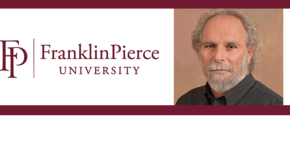 Americans donate the most to charity.
Americans donate the most to charity.
Allan Rachlin, associate professor of sociology at Franklin Pierce University, examines why we’re not at the top of other quality of life lists.
Allan Rachlin is an associate professor of sociology at Franklin Pierce University in Rindge, N.H., where he teaches a popular undergraduate course on poverty and wealth in America. His other areas of teaching, writing and academic research explore: social inequality in the United States; American political culture; race & ethnicity in the U.S.; sport in American society; and American media & democracy.
Rachlin’s faculty web page: https://www.franklinpierce.edu/academics/bios/rachlina.htm
Education:
B.A., Sociology, SUNY College at Cortland
M.A., Philosophy, Arizona State University
Ph.D., Sociology, SUNY Buffalo
Americans Quality of Life
Americans contribute more to charity than citizens of any other country. Even after adjusting for the size of the population and economy, Americans give at twice the rate of the next most charitable nation, Canada. We generously contributed more than $410 billion to well-intended organizations in 2017.
Despite our charitable giving, on a full range of measures of quality of life, Americans fare poorly in comparison to other western democracies. On measures of violent crime, inequality and mobility, infant mortality and life expectancy, educational access and achievement, even on measures of trust, the U.S. falls at the bottom of the list.
Even with the billions of dollars of charitable giving, our fellow citizens still suffer these adversities. Why are people of other nations, with less charity, able to avoid such hardships?
Our culture promotes individualism.
It is an essential part of the story of American exceptionalism.
What is less recognized is that this individualism takes two related forms: a moral individualism that holds each of us responsible for our own lives, our grit and determination; and an ontological individualism that imagines that societal experience is simply the accumulation of individual choices and behaviors.
If we begin to challenge the limits of these two concepts of American individualism – particularly our denial of the influences of social policy and institutional forces – and consider the array of policies and institutional arrangements common in other western democracies, we might begin to recognize the larger societal forces that shape our own disproportionate opportunities.
We might also attend to the promotion of a just society, one that reduces the need for charity by promoting equality and opportunity for all.

Comments
One response to “Allan Rachlin, Franklin Pierce University – American’s Quality of Life”
This rant makes no sense Individualism can’t be the problem because every “western” (what does that even mean?) democracy that this so called professor compares Americas qol to is individualist . Mediocre ideas like this is just another example why the academy is treated by so many as the enemy of the people.